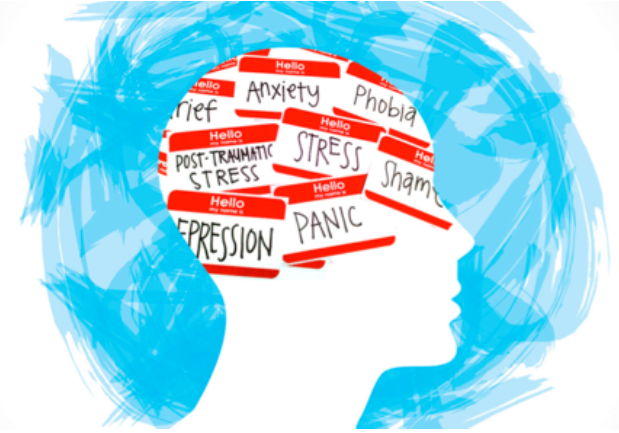World Mental Health Day 2021
October 8, 2021
“It’s okay to not be okay.” This is a common phrase we’ve all heard lately. Oct. 10 is World Mental Health Day. It is a day for those working on mental health issues to talk about their work, and talk about what needs to be done to help those struggling worldwide.
It is also a day to help raise awareness and support mental health. “Mental health care for all: let’s make it a reality” is the main focus for the cause this year. While there is a lot that society needs to do to help this issue that effects so many, the first big step is to remove the discrimination and stigma that surrounds it. The best way to do this is by learning facts to gain a better understanding, to finding the cause and solution and by realizing that it really is just like any other disease that can be contracted.
“Health is a state of complete physical, mental and social well-being and not merely the absence of disease or infirmity.” The stigma that surrounds mental health is extremely hurtful and damaging. It can stop people from getting help that desperately needs it.
It is also important to watch our language when addressing mental health situations, like the use of the word “crazy”. Whether our words are unintentional or not, they can still be painful and cause people to not seek proper help. Due to COVID-19, mental health struggles have only been increasing, leaving major stress and anxiety. But even prior to that, mental illness rates were increasing.
World Mental Health day’s website provides helpful information for those looking to learn more. Statistics state that the 10th leading cause of death in the United States is suicide, and that there are an average 130 suicides a day, in 2019 as estimated 1.38 Million people attempted suicide and that one in five adults suffer from Mental illness. One in four people will need mental health care in their lives. With more than 43 million people suffering right now in America. Since 2012, depression among youth has risen from 5.9% to 8.2%.
Another reason why people don’t seek help is because mental health care is because it is financially hard for people to access. The website mentioned above also includes helpful FAQ’S for people to answer questions they may have. One question is “Why is it important”.
The website explains that “The idea of the mind is an abstract concept and this day allows us to think about our thoughts. This day reminds you that whatever you’re going through, you’re not alone. Too often we think that we’re the only ones facing a hard time. It’s uplifting to know that other people have gone through it and made it out to the other end. It reminds you that you can overcome your own pain. As our understanding of mental health grows, so does our ability to seek proper treatment. With the right therapist and necessary medication, you can operate on a more efficient level. The more accepting we are and the more funding that’s put into research and mental healthcare, the greater the global impact.”
It also says that mental health is caused when “Multiple factors can contribute to mental health issues relating to your biology and external factors: psychological trauma, the early loss of a parent, and neglect are a few examples.”
It also has advice on what to do when approaching others who are struggling.
“Many people want to help, but don’t know how to. Keep it casual and ask to take someone who might be suffering out to lunch and simply let them know that you’re there for them.”
On how to know if you suffer from mental health issues, “It’s important to consult a mental health professional if you have serious concerns. Some signs to look out for are changes in sleep or appetite, rapid or dramatic mood changes, withdrawal, a decline in functioning, and having problems thinking straight.”
Self care is strongly urged, this can include working out, sleeping, eating well, focusing on the positives in life and by doing relaxing activities. Ultimately, While we’ve come a long way the last few years, there’s still so much to do as a society. While there are some fortunate enough that don’t battle with mental illness, every single person can do their part to contribute to supporting those around them.


